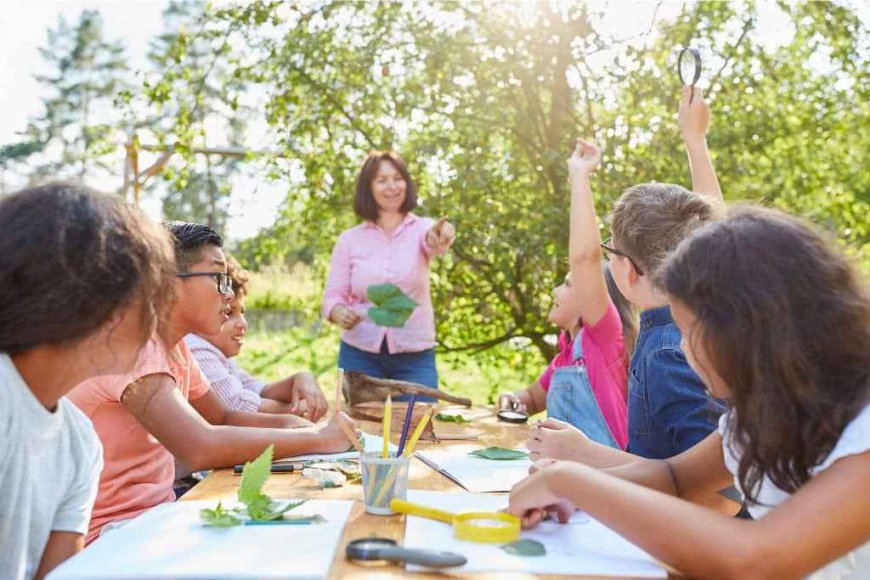Environmental Education and Sustainability for a Brighter Future
In a world facing unprecedented environmental challenges, integrating environmental education and sustainability into school curricula

In a world facing unprecedented environmental challenges, integrating environmental education and sustainability into school curricula is not only crucial but also an urgent necessity. As climate change and ecological degradation become increasingly evident, it is essential to raise awareness among the younger generation about the importance of sustainability and environmental stewardship. In this article, we explore the significance of environmental education, its integration into school curricula, and how it empowers the youth to become active agents in the fight against climate change, ensuring a sustainable and greener future for all.
The Imperative for Environmental Education
Environmental education serves as a powerful tool to equip students with knowledge and understanding of environmental issues, such as climate change, biodiversity loss, and resource depletion. By fostering an ecological worldview, it inspires a sense of responsibility towards the planet and all its inhabitants.
The urgency for environmental education arises from the pressing need to address environmental challenges, some of which are already impacting communities worldwide. Educating the younger generation about sustainability and environmental conservation can drive informed decision-making, policy advocacy, and collective action to protect the planet.
Integration into School Curricula
Integrating environmental education into school curricula ensures that sustainability becomes an integral part of the learning experience from an early age. Environmental topics can be seamlessly woven into subjects like science, social studies, and geography, enabling students to explore environmental issues in diverse contexts.
Incorporating hands-on learning experiences, such as school gardens, waste reduction projects, and environmental field trips, deepens students' connection with nature and fosters a sense of wonder and stewardship. These experiences enhance the relevance of environmental education and nurture an emotional bond with the environment, making sustainability a personal and meaningful pursuit.
Raising Awareness about Sustainability
Environmental education plays a critical role in raising awareness about sustainability principles and practices. It imparts knowledge about renewable energy, sustainable agriculture, waste management, and conservation efforts, empowering students with the tools to make environmentally conscious choices in their daily lives.
Raising awareness also involves discussing the impact of individual actions on the environment and highlighting the interconnectedness of global challenges. When students understand that their actions can influence environmental outcomes, they are more likely to adopt sustainable practices and advocate for positive change within their communities.
Empowering Youth to Take Action
Environmental education goes beyond awareness-raising; it empowers students to become changemakers and environmental advocates. By nurturing critical thinking and problem-solving skills, it equips students to address complex environmental challenges creatively.
Environmental education can inspire youth-led initiatives, such as climate strikes, community cleanups, and tree-planting campaigns. These actions not only contribute to tangible environmental benefits but also instill a sense of agency and purpose in young individuals, encouraging them to believe in their ability to make a positive impact on the world.
The Role of Educators
Educators play a pivotal role in shaping the environmental consciousness of the younger generation. Teachers who embrace environmental education as part of their teaching philosophy become catalysts for change.
Professional development opportunities for educators can enhance their capacity to deliver effective environmental education. Workshops, training programs, and resources on sustainability practices and teaching methodologies enable educators to create enriching learning experiences that inspire students to become environmentally responsible citizens.
Collaboration and Community Engagement
Environmental education thrives through collaboration and community engagement. Partnerships with environmental organizations, local governments, and businesses enrich students' learning experiences by connecting them to real-world environmental challenges and solutions.
Engaging with the local community through environmental projects fosters a sense of place-based stewardship. Students become vested in their community's well-being, driving environmental initiatives that benefit both local ecosystems and the people who inhabit them.
Environmental education and sustainability are catalysts for transformative change, nurturing a generation of eco-literate and environmentally conscious citizens. Integrating environmental education into school curricula elevates the importance of sustainability in the learning journey, making it a foundational component of a holistic education.
By raising awareness about sustainability, empowering youth to take action, and fostering collaboration and community engagement, environmental education equips the younger generation to be the guardians of a sustainable and resilient future. The green generation emerges as a powerful force for change, committed to preserving the planet and creating a world where the harmony between humanity and nature thrives. In this shared pursuit, environmental education illuminates the path to a brighter and greener future for generations to come.
